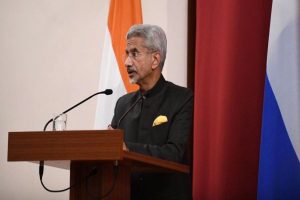Tharman Shanmugaratnam, of Indian origin, has captured the spotlight as Singapore’s President-elect. With growing interest in his personal background, we take a closer look at Tharman Shanmugaratnam’s parents and his family roots.
Tharman was born on February 25, 1957, in Singapore, into a culturally diverse family. His father, Kanagaratnam Shanmugaratnam, was a renowned histopathologist and cancer researcher in Singapore.
He was affectionately known as Singapore’s “father of pathology.” His groundbreaking work focused on nasopharyngeal carcinoma, and he was the visionary behind the establishment of the Singapore Cancer Registry.
In addition to his medical contributions, Kanagaratnam Shanmugaratnam was a dedicated educator. He played a pivotal role in developing medical education in Singapore, particularly in the realm of postgraduate training for local doctors.
More about Tharman Shanmugaratnam’s father:
In 1967, he spearheaded the creation of the Singapore Cancer Registry (SCR) within the University of Singapore’s pathology department, with the financial support of the International Agency for Research on Cancer and the Singapore Cancer Society.
His enduring commitment to education and research led to his appointment as Emeritus Professor by NUS in 1986. Remarkably, he continued to lecture and lead seminars well into his nineties. Throughout his illustrious career, he actively participated in various committees and organizations, including the Academy of Medicine, the Singapore Medical Council, and the Union for International Cancer Control.
His specialized research centered on nasopharyngeal carcinoma, a prevalent form of cancer in Southeast Asia and southern China.
Kanagaratnam Shanmugaratnam, born in Singapore in 1921, hailed from a family of five children and had Ceylonese Tamil heritage. His father worked as a teacher.
Shanmugaratnam’s academic journey took shape at Victoria School, where he completed his secondary education. In 1937, he embarked on his medical studies at the King Edward VII College of Medicine. However, his education faced interruptions due to the upheaval of World War II and the Japanese occupation. Nevertheless, he persevered and ultimately graduated in 1947.
During his undergraduate years, Shanmugaratnam stood out as a well-rounded student. He excelled not only in academics but also in cricket, securing numerous academic accolades. Furthermore, he served as the president of the medical school students’ union, leaving a lasting imprint on the institution.
As Tharman Shanmugaratnam’s family background comes to light, it becomes evident that his remarkable legacy is rooted in a rich tapestry of academic excellence, medical innovation, and a commitment to education.
Regarding Tharman Shanmugaratnam’s parents, there is very less information in the public domain about his mother.












